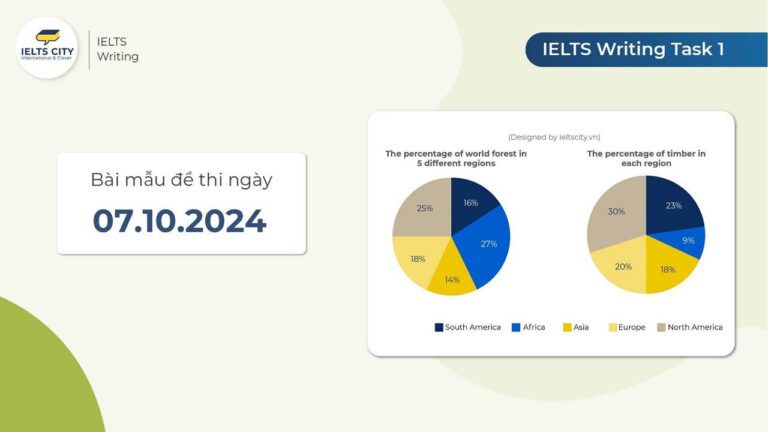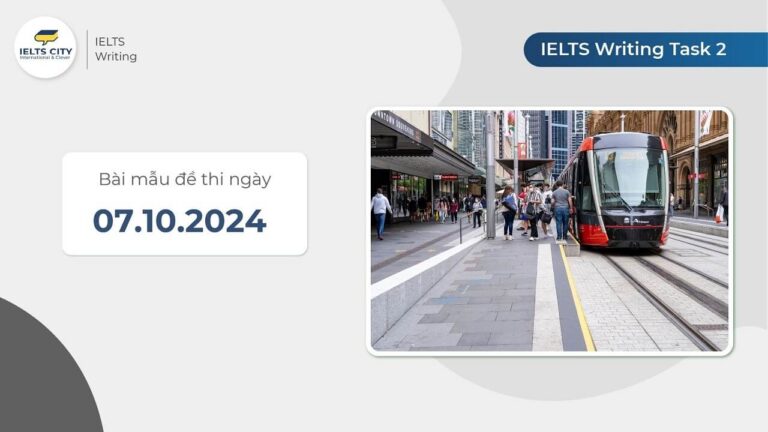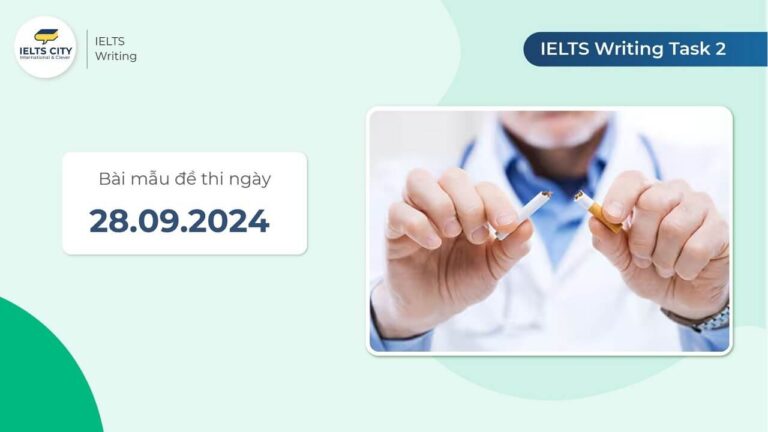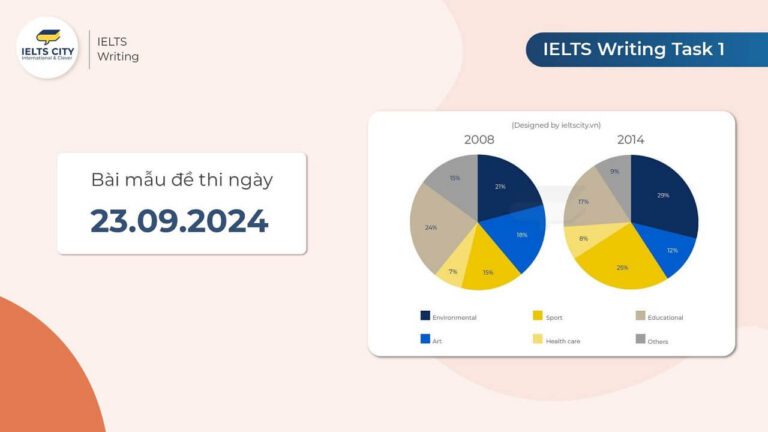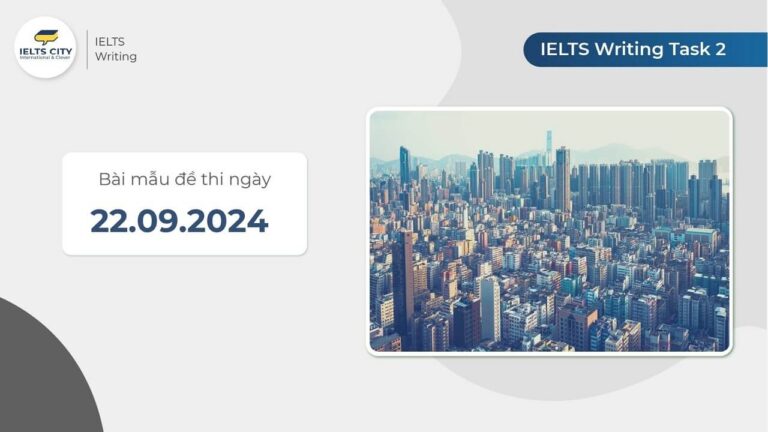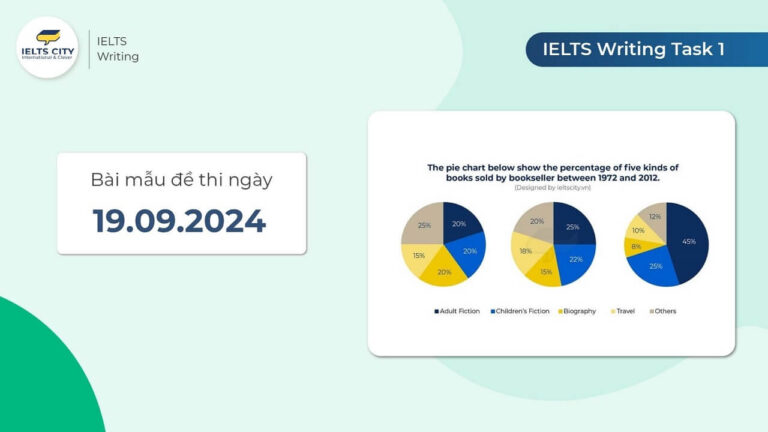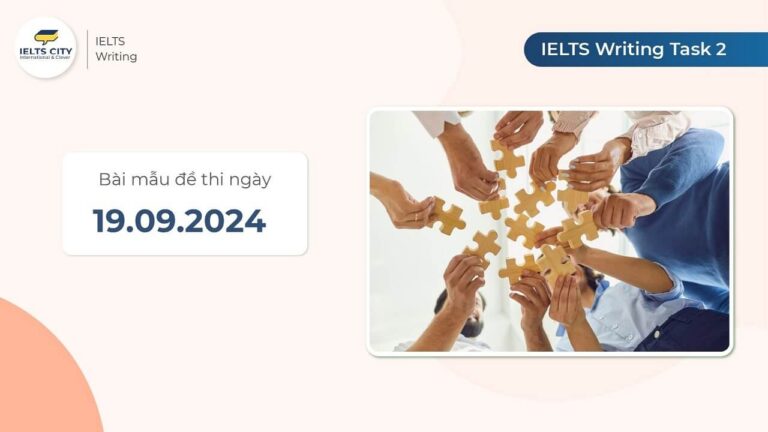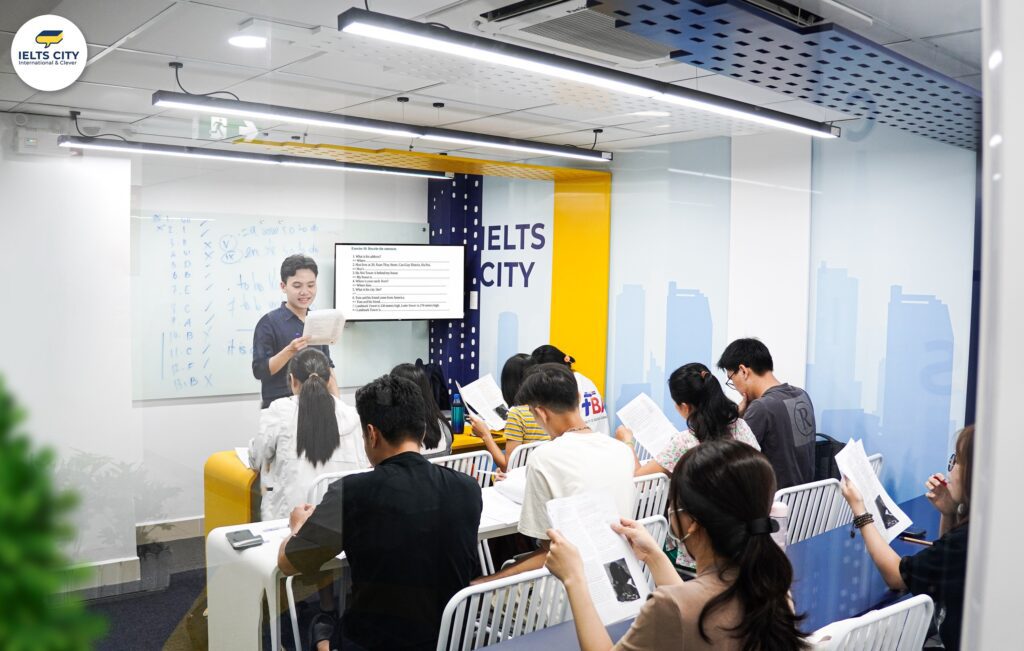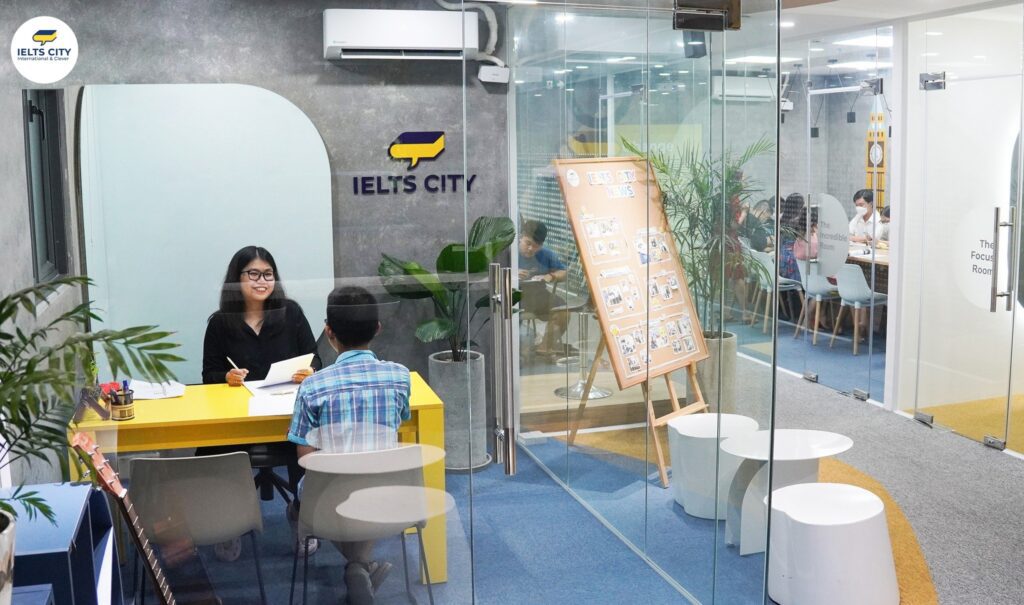Đề thi IELTS Writing Task 2 ngày 11.01.2024 là đề dạng Advantage and Disadvantage. Trong đề này, bạn sẽ phải thể hiện quan điểm của mình về những lợi ích và hạn chế của việc du lịch quốc tế càng ngày dễ dàng hơn.
Để trả lời tốt cho đề này, các bạn hãy cùng IELTS CITY tham khảo bài mẫu band 7.5+ sau kèm một số từ vựng hay nhé!
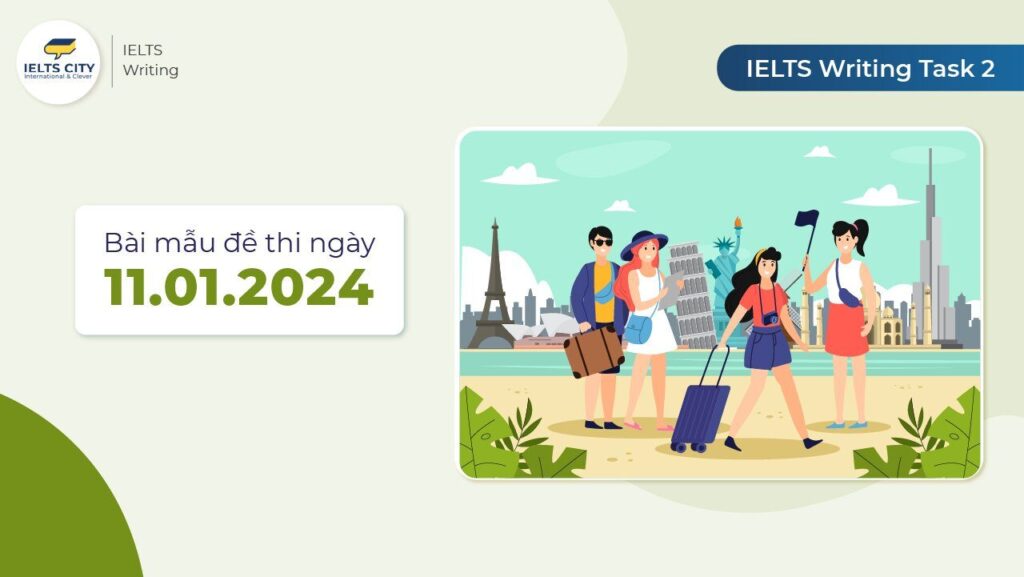
Nội dung chính
ToggleĐề bài
International travel is becoming cheaper, and countries are opening their doors to more and more tourists. Do the advantages of increased tourism outweigh the disadvantages?
Dàn bài
Introduction:
- Paraphrase the topic
Countries increasingly opening their doors to tourists has sparked off a debate whether the advantages of this trend outweigh its disadvantages.
- Thesis statement (state opinion)
While increased tourism offers numerous benefits, it also poses challenges that necessitate careful considerations.
Body 1:
Main idea: increased tourism has brought undeniable economic advantages.
Supporting ideas:
- Countries welcoming more tourists witness a boost in their local economies through spending on accommodation, dining, transportation and various recreational activities.
=> revenues not only support the tourism industry but also have a profound effect on other sectors, thus fostering job creation and economic development
- Exposure to different cultures and traditions deepens cross-cultural understanding, breaking down stereotypes and promoting global harmony
=> The interchange of ideas and perspectives between tourists and locals can contribute to the enrichment of both parties, creating a more interconnected and empathetic world.
Body 2:
Drawbacks of increased tourism
Main idea: it is crucial to acknowledge the downsides of the tourist boom
Supporting ideas:
- Increased footfall in popular tourist destinations often leads to ecological degradation, exerting stress on delicate ecosystems and contributing to climate change.
- Overcrowding can lead to pollution, habitat destruction and strain on essential resources and therefore pose a threat to the attractions that draw tourists in the first place.
- The influx of tourists can strain local infrastructure and resources, leading to issues such as traffic congestion, waste management challenges and growing demand for energy.
Sample answer 7.5+
In recent years, international tourism has experienced a surge in popularity, fueled by the decreasing cost of transportation and the ever-growing accessibility of diverse tourist destinations. Countries increasingly opening their doors to tourists has sparked off a debate whether the advantages of this trend outweigh its disadvantages. While increased tourism offers numerous benefits, it also poses challenges that necessitate careful considerations.
On the positive side, increased tourism has brought undeniable advantages. Countries welcoming more tourists witness a boost in their local economies through spending on accommodation, dining, transportation and various recreational activities. This influx of revenues not only supports the tourism industry but also has a profound effect on other sectors, thus fostering job creation and economic development. Furthermore, exposure to different cultures and traditions deepens cross-cultural understanding, breaking down stereotypes and promoting global harmony. The interchange of ideas and perspectives between tourists and locals can contribute to the enrichment of both parties, creating a more interconnected and empathetic world.
However, it is crucial to acknowledge the downsides of the tourist boom and one of the most significant concerns is the environmental impact. Increased footfall in popular tourist destinations often leads to ecological degradation, exerting stress on delicate ecosystems and contributing to climate change. Overcrowding can lead to pollution, habitat destruction and strain on essential resources and therefore pose a threat to the attractions that draw tourists in the first place. Additionally, the influx of tourists can strain local infrastructure and resources, leading to issues such as traffic congestion, waste management challenges and growing demand for energy.
In conclusion, the merits and demerits of booming tourism are multifaceted and require balanced evaluation. While there are indisputable economic benefits and cultural exchange fostered by tourism, the environmental drawbacks must not be ignored.
Đăng ký học thử
2 tuần miễn phí
Ưu đãi học phí lên đến 50%
& Tặng 100% lệ phí thi IELTS
Đăng ký học thử
2 tuần miễn phí
Ưu đãi học phí lên đến 50%
& Tặng 100% lệ phí thi IELTS
Từ vựng highlight
- surge (n): a sudden and great increase (sự tăng lên nhanh chóng)
- fuel (v): to increase a feeling or a type of behaviour or make it stronger (thổi bùng)
- spark off a debate (collocation): create a debate (tạo nên một cuộc tranh cãi)
- pose challenges (collocation): create challenges (tạo ra những khó khăn)
- necessitate (v): to cause something to be needed, or to make something necessary (khiến thứ gì đó trở nên cần thiết)
- influx (n): the fact of a large number of people or things arriving at the same time (một lượng lớn)
- foster (v): to encourage the development or growth of ideas or feelings (thúc đẩy)
- deepen cross-cultural understanding (phrase): create deeper understanding (tạo nên sự thấu hiểu sâu hơn)
- stereotype (n): a set idea that people have about what someone or something is like, especially an idea that is wrong (khuôn mẫu)
- harmony (n): a situation in which people are peaceful and agree with each other, or when things seem right or suitable together (sự hài hoà)
- enrichment (n): the act or process of improving the quality or power of something by adding something else (sự cải thiện)
- interconnected (a): with different parts or things connected or related to each other (tương quan)
- empathetic (a): having the ability to imagine how someone else feels (đồng cảm)
- ecological degradation (phrase): damage or change to the natural environment that is perceived to be deleterious or to have negative effects (thái hoá sinh thái)
- exert stress on (collocation): put stress on (gây áp lực lên ai/cái gì)
- delicate (a): needing careful treatment, especially because easily damaged (mỏng manh)
- strain (n): a force or influence that stretches, pulls, or puts pressure on something, sometimes causing damage (sự căng, sự căng thẳng)
- pose a threat to someone/something (collocation): create the threat of danger or harm (đe doạ cái gì)
- multifaceted (a): having many different parts or sides/ complex (phức tạp, đa chiều)
- indisputable (a): true, and impossible to doubt (đúng, không thể nghi ngờ)
Bản dịch
Trong những năm gần đây, du lịch quốc tế đã có sự phát triển vượt bậc nhờ chi phí vận chuyển giảm và khả năng tiếp cận các điểm du lịch đa dạng ngày càng tăng. Các quốc gia ngày càng mở cửa đón khách du lịch đã làm dấy lên cuộc tranh luận về việc liệu lợi ích của xu hướng này có lớn hơn những bất lợi của nó hay không. Mặc dù du lịch tăng trưởng mang lại nhiều lợi ích nhưng nó cũng đặt ra những thách thức đòi hỏi phải cân nhắc kỹ lưỡng.
Về mặt tích cực, du lịch tăng trưởng đã mang lại những lợi thế không thể phủ nhận. Các quốc gia chào đón nhiều khách du lịch hơn chứng kiến nền kinh tế địa phương của họ tăng trưởng thông qua chi tiêu cho chỗ ở, ăn uống, vận chuyển và các hoạt động giải trí khác nhau. Dòng doanh thu này không chỉ hỗ trợ ngành du lịch mà còn có tác động sâu sắc đến các lĩnh vực khác, từ đó thúc đẩy tạo việc làm và phát triển kinh tế. Hơn nữa, việc tiếp xúc với các nền văn hóa và truyền thống khác nhau giúp tăng cường sự hiểu biết đa văn hóa, phá bỏ các khuôn mẫu và thúc đẩy sự hòa hợp toàn cầu. Sự trao đổi ý tưởng và quan điểm giữa khách du lịch và người dân địa phương có thể góp phần làm phong phú thêm mối quan hệ của cả hai bên, tạo ra một thế giới gắn kết và đồng cảm hơn.
Tuy nhiên, điều quan trọng là phải thừa nhận những mặt trái của sự bùng nổ du lịch và một trong những mối quan tâm lớn nhất là tác động đến môi trường. Lượng khách đến các điểm du lịch nổi tiếng ngày càng tăng thường dẫn đến suy thoái sinh thái, gây căng thẳng cho các hệ sinh thái mỏng manh và góp phần gây ra biến đổi khí hậu. Tình trạng quá đông đúc có thể dẫn đến ô nhiễm, phá hủy môi trường sống và gây căng thẳng cho các nguồn tài nguyên thiết yếu và do đó gây ra mối đe dọa cho các điểm tham quan thu hút khách du lịch ngay từ đầu. Ngoài ra, lượng khách du lịch có thể gây căng thẳng cho cơ sở hạ tầng và tài nguyên địa phương, dẫn đến các vấn đề như tắc nghẽn giao thông, thách thức quản lý chất thải và nhu cầu năng lượng ngày càng tăng.
Tóm lại, những ưu điểm và nhược điểm của việc bùng nổ du lịch là rất nhiều mặt và cần được đánh giá một cách cân bằng. Mặc dù có những lợi ích không thể chối cãi về kinh tế và trao đổi văn hóa được thúc đẩy bởi du lịch, không thể bỏ qua những hạn chế về môi trường.
Cập nhật đề Writing mới nhất tại: Tổng hợp đề thi IELTS Writing 2024
Hy vọng với bài mẫu đề thi IELTS Writing task 2 ngày 11.01.2024 band 7.5+ trên sẽ giúp các bạn nắm được cách triển khai ý hay và hiệu quả khi gặp đề bài này nhé. Chúc các bạn luyện IELTS Writing thành công!
Tham khảo ngay các khóa học IELTS cam kết đầu ra tại IELTS CITY với ưu đãi lên đến 50% học phí và 100% lệ phí thi IELTS!


